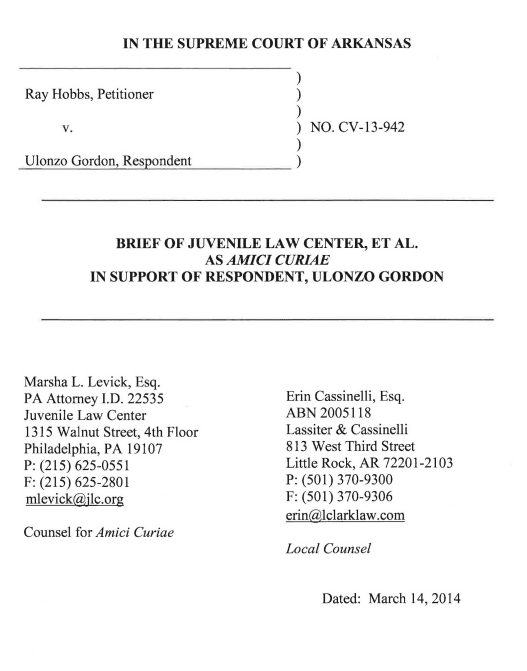
Summary of Argument
In Miller v. Alabama, 567 U.S. __ , 132 S. Ct. 2455 (2012), the United States Supreme Court held that the mandatory imposition of sentences of life without the possibility of parole on juvenile offenders convicted of murder is unconstitutional. At the time Respondent Gordon was sentenced for a crime he committed as a juvenile, state law mandated a life without parole sentence for his murder-based offense. As applied to juvenile offenders, this mandatory scheme is unconstitutional pursuant to Miller, which reaffirms the U.S. Supreme Court's recognition that children are categorically less deserving of the harshest forms of punishments.
Miller applies retroactively to Respondent Gordon and to other cases that have become final after the expiration of the period for direct review, for four primary reasons. First, the United States Supreme Court has already applied Miller retroactively by affording relief in Kuntrell Jackson's case, which was before the Court on collateral review. Second, Miller announced a substantive rule, which pursuant to Supreme Court precedent applies retroactively. Third, Miller is a watershed rule of criminal procedure that applies retroactively. Finally, Miller must be applied retroactively because, once the Court determines that a punishment is cruel and unusual when imposed on a child, any continuing imposition of that sentence is itself a violation of the Eighth Amendment; an arbitrary date on the calendar cannot deem a sentence constitutional which the United States Supreme Court has now declared cruel and unusual punishment.